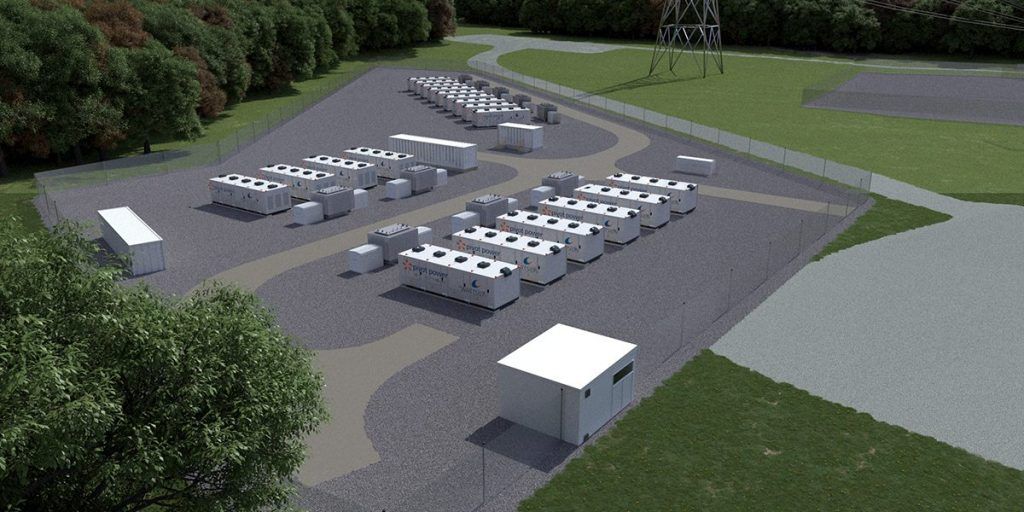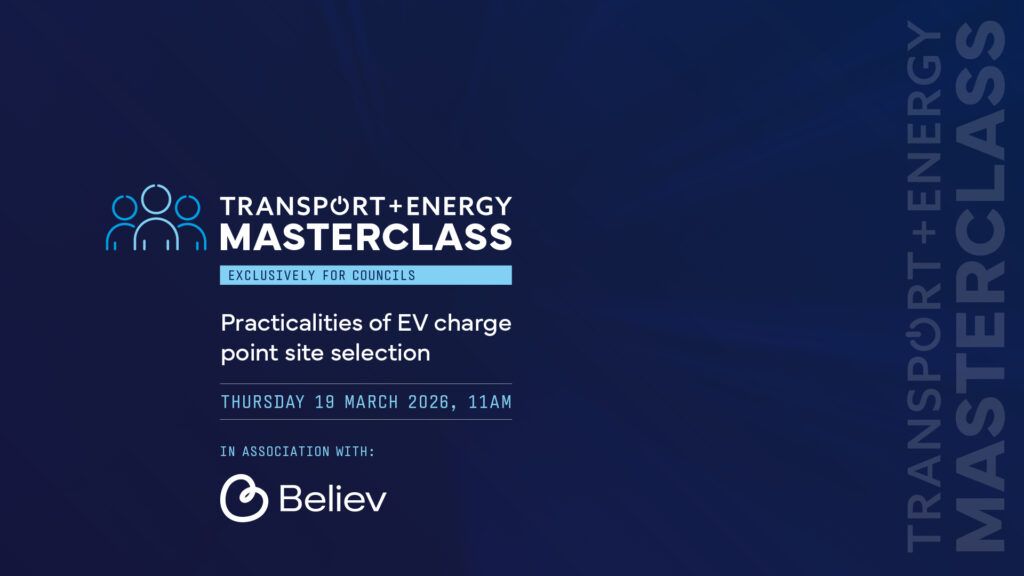UK-based Pivot Power has announced a deal with Wärtsilä to deliver two new grid-scale battery storage facilities in Coventry and Sandwell, to accelerate the West Midlands’ and UK-wide drive to net zero.
Their innovative model supports EDF group’s ambition to become Europe’s leading e-mobility energy company by 2023 and forms a key pillar of its plan to develop an additional 10GW of battery storage globally by 2035.
This is the latest phase of Pivot Power’s nationwide rollout of Energy Superhubs, designed to deliver up to 2GW of transmission-connected battery storage and high-volume power connections to support more renewables and create the power infrastructure for mass-scale, rapid electric vehicle (EV) charging.
Once complete, the new Energy Superhubs will form part of a portfolio of Britain’s most powerful EV charging sites. Pivot Power’s first project – Energy Superhub Oxford – is nearing completion and will provide a blueprint for towns and cities across the UK to cut carbon and improve air quality.
It is backed by funding from UK Research and Innovation (UKRI) and integrates rapid EV charging, battery storage, low carbon heating and smart energy management technologies to save 10,000 tonnes of CO2 every year once opened. This is the equivalent to taking over 2,000 cars off the road, increasing to 25,000 tonnes by 2032.
Wärtsilä will supply the cutting-edge battery technology for both West Midlands projects, underpinned by its world leading GEMS Digital Energy Platform, which dynamically optimises energy systems through a broad range of applications, providing critical feedback to stakeholders across asset owner, operation and trading value chains.
The partnership with Pivot Power is an important part of Wärtsilä’s ambition to enable a 100% clean energy system in the UK by providing essential grid flexibility, and builds on the companies’ first two projects together in Oxford and Kent.
Battery storage is crucial to meet the Government’s 2050 net zero climate change targets, providing flexible capacity to enhance the reliability of our electricity system and cost-effectively integrate more renewable generation.
Pivot Power’s network could provide almost 10% of the battery storage it is predicted the UK will need by 2050 and will help to create a smarter, more flexible grid which could save up to £40 billion.
Matt Allen, CEO of Pivot Power, said: “This is the next step in our nationwide rollout of Energy Superhubs which will create the low carbon infrastructure needed to support the EV and renewable energy revolution. As part of EDF Renewables, Pivot Power’s purpose is to accelerate a net zero future where clean energy powers our lives.
“We are working hand-in-hand with local authorities to help them meet their climate and clean air pledges, so people can live and work in cleaner, more sustainable cities.”
Andy Tang, Vice President, Energy Storage & Optimisation, Wärtsilä, said: “The UK recently set a bold ambition to slash carbon emissions by 78% by 2035 and flexibility is the key to achieving 100% renewables and decarbonising the economy. Our energy storage systems are helping leading innovators like Pivot Power turn these ambitions into reality. The enhanced flexibility this project will provide is precisely what we need to accelerate our cost-optimal pathway to 100% clean power.”
Delivering net zero for local authorities
At both sites the battery storage systems will share their connection to the high-voltage electricity transmission network with a high-volume power connection, which will deliver large amounts of power for rapid EV charging to strategic locations in the local area, from public charging hubs to bus depots and commercial fleets.
For example in Oxford it will deliver up to 10MW of power to the UK’s largest public charging hub at a Park & Ride on the outskirts of the city, with plans to expand to bus and council depots in the near future.
Rolling out charging infrastructure for electric vehicles at scale is critical to help the West Midlands meet its target to be zero carbon by 2041. Pivot Power is developing its Energy Superhubs in partnership with Coventry City Council, Sandwell Council and West Midlands development agencies, to maximise impact and deliver world-leading urban decarbonisation projects.
The batteries are the first phase in their rollout, which will help ensure clean, affordable and secure electricity supplies for both Coventry and Sandwell as polluting coal and gas-fired power stations close and more clean energy is brought onto the grid.
Councillor Jim O’Boyle, Cabinet Member for Jobs, Regeneration and Climate Change at Coventry City Council, said: “Working with Pivot Power on this project is helping Coventry deliver on our climate commitments. We are leading the way in creating innovative, low carbon infrastructure to decarbonise transport and improve air quality, helping people move away from polluting vehicles to green, clean transport. This project will combine with a raft of other green industrial revolution projects being pioneered in Coventry as we lead the way in this increasingly important sector.”
Councillor Steve Melia, West Bromwich Town Lead at Sandwell Council, said: “Sandwell is one of the first communities to benefit from the unique infrastructure investment that this project brings. Pivot Power’s Energy Superhub will not only ensure that more of our power comes from clean, sustainable sources but will also help to power ultra-fast public EV charging hubs in the Sandwell area, supporting our strategy to reduce carbon emissions, improve air quality and create sustainable jobs and economic growth.
“The site is at the heart of the English motorway network. As such, there are many hotels, bus garages and service stations nearby which are ideally situated to make use of this facility.”
Rob Saunders, Challenge Director for the UKRI’s Prospering from the Energy Revolution programme, said: “UKRI’s funding aims to demonstrate approaches that can be scaled up and repeated across the UK, and Energy Superhub Oxford is an ideal illustration of how the Superhub model can help to deliver a local area’s plans for decarbonisation and clean air. We are delighted to see these announcements paving the way for further replication which can help local authorities and communities across the UK deliver a cleaner, net zero future.”
Pivot Power’s Energy Superhubs are all located alongside National Grid substations and have been selected for proximity to major road networks and urban populations. The Coventry battery storage system is located to the north east of the city, close to junction 2 of the M6 and Sandwell’s is located close to junction 7 of the M6 where the M5 and A34 meet.
In consultation with both Councils, Pivot Power has undertaken a range of detailed environmental studies to ensure that no significant effects will arise from the facilities. The sites are well screened and will have minimal visibility from public viewpoints.
Construction of the battery storage systems is due to commence at Sandwell in Q4 2021 and at Coventry in Q1 2022.
Image: courtesy Pivot Power












